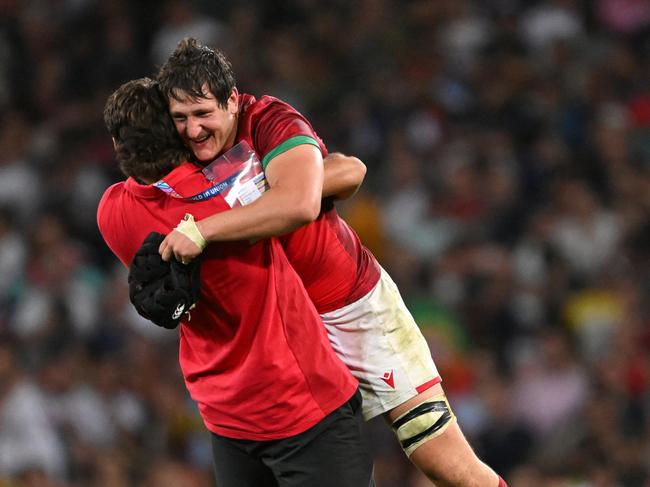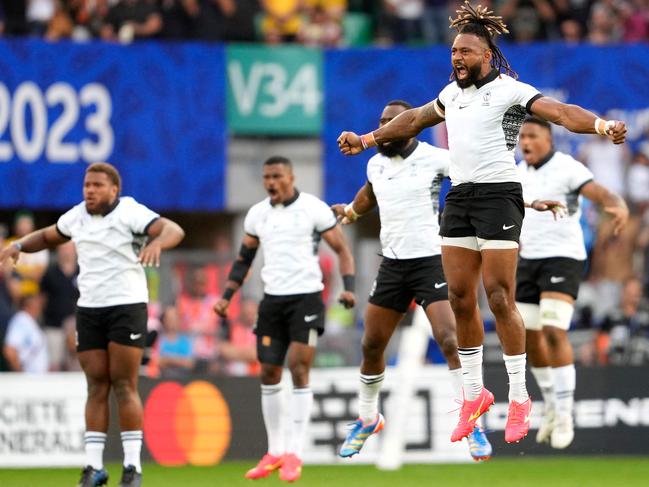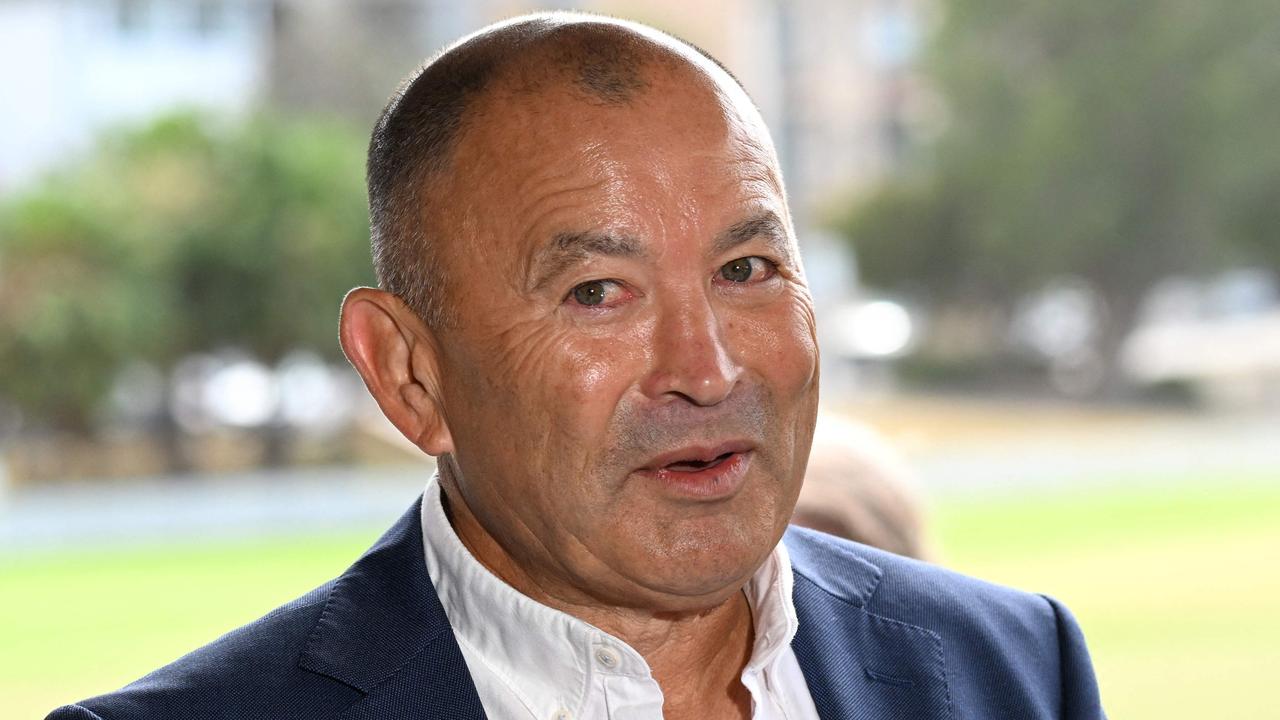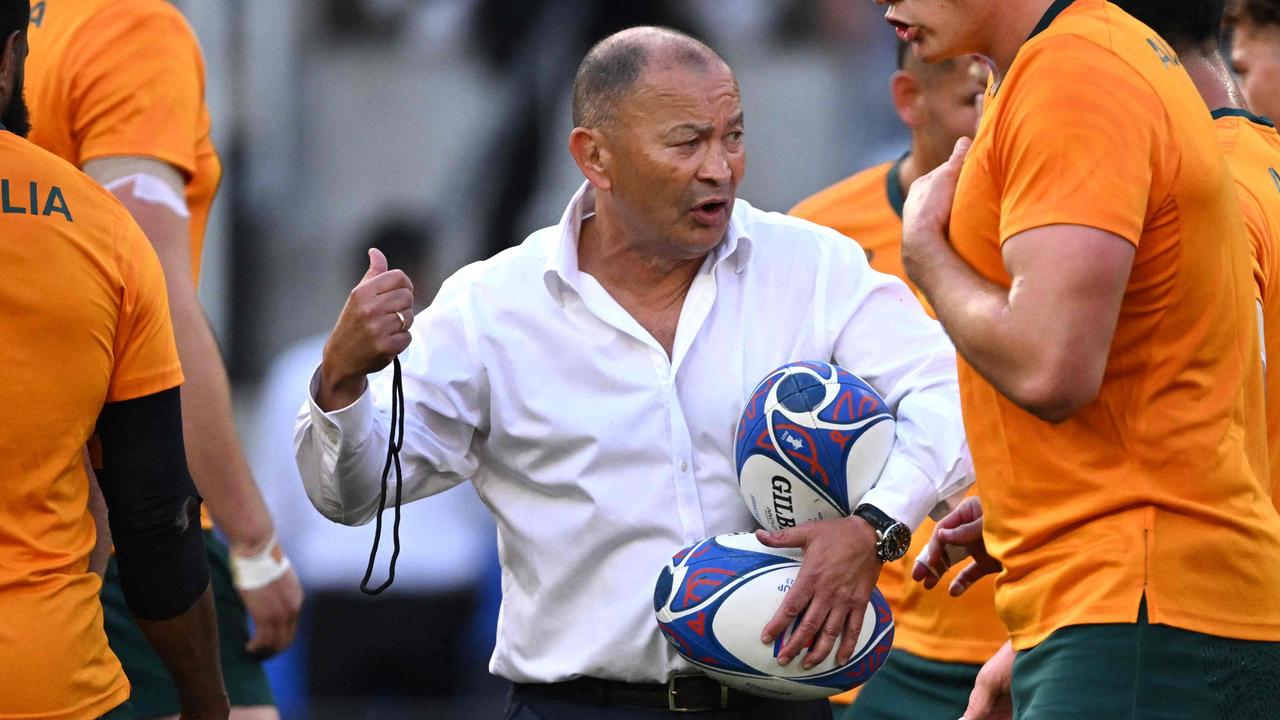Rugby World Cup 2023: World Rugby protects the rich and punishes the poor with new global format
World Rugby has finally announced the much-needed global competition but its protection of the rich and powerful will hurt the game for years.

Rugby
Don't miss out on the headlines from Rugby. Followed categories will be added to My News.
What a kick in the face to the feel-good stories of this World Cup.
The newly announced global rugby schedule to start from 2026 is the restructure the game needs.
It will give meaning to Tests that for so long have been largely meaningless aside from raising revenue.
However, in establishing a two-tier program that locks lesser teams out of promotion until 2030, World Rugby will for far too long kill the prospects of those teams developing into major forces.
The No. 1 focus for World Rugby should be to create FIFA-style World Cups at which as many as 10 teams can win the big trophy every four years.
This weekend, New Zealand and South Africa, which have won the past four between them, will battle it out for the 2023 World Cup in the final.

It’s getting stale and losing audiences that have potential growth.
The tier-one teams agreed to the new global proposal because it saves them all from relegation for the next seven years.
So while the game roundly applauded Samoa’s near win over England, Georgia’s performances all-round, Portugal’s famous win over Fiji and the incredible win Fiji had over Australia at this World Cup, those results will become less likely under the future model.
The Six Nations and Rugby Championship teams, which are set to include Fiji and Japan in an expanded tournament from 2026, have shored up their positions as the safe top 12.
It is important for them to do so but 2030 is too long a time to have that security and lock out teams such as Georgia, Portugal and Samoa, which will be playing against teams that won’t have many players who are professional.
Let’s not forget, tier-one nation Italy lost 96-17 to New Zealand in the pools, yet “gli Azzurri” will be safe from relegation until 2030, all the while top-performing tier-two teams will play among themselves and others that are barely competitive.

The newly formed global competition, often referred to as the Nations Championship but without a ratified name, will be played every two years.
It’s proper that the existing Six Nations and Rugby Championships are protected for the first edition but the promotion-relegation system should come in at the 2028 tournament.
That would be one year after the expanded, 24-team Rugby World Cup in 2027 in Australia.
At that tournament, we are sure to see some surprise results and impressive performances from minnow teams, as we have seen this year.
Yet countries ranked 13 to 24 will then be banished to the second league competition the following year.
They won’t play any games against the best nations and there will be no opportunity to build on their improvement.
Fiji’s rise is a classic example of how shortsighted this move is.
In the past six years, the Flying Fijians have beaten Italy, Scotland, France and England in Tests outside the World Cup.

Without those games against tier-one nations, they would not have had the chance to develop, learn, adapt and improve to produce the 22-15 win over the Wallabies at this World Cup.
It was the moment of the tournament.
The next-in-line tier-two nation to produce that type of result will be robbed of those important games and fall further back in its progress.
In reality, the teams that are promoted and relegated when that format begins in 2030 are likely to jump straight down and up by the next edition because of the chasm that will be created in the first years.
More Coverage
Originally published as Rugby World Cup 2023: World Rugby protects the rich and punishes the poor with new global format





